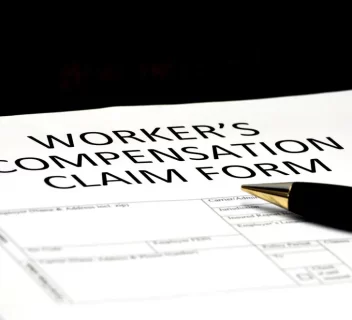Top Signs of Retaliation at Work and How to Take Action
Workplace retaliation can create a toxic and unproductive environment, leaving employees feeling trapped, undervalued, and even scared to advocate for their rights. A discriminatory workplace culture often arises in such environments, where employees face punishment for standing against discrimination. Understanding the signs of retaliation at work is crucial for protecting yourself and maintaining a fair workplace. Whether you suspect retaliation or want to know how to act if it happens, this article will provide valuable insights and guidance. Let’s explore what retaliation looks like, how to handle it, and what legal remedies might be available.
What Qualifies as Workplace Retaliation?
Workplace retaliation occurs when an employer takes adverse action against an employee for engaging in legally protected activities. These activities can include reporting discrimination, harassment, or unsafe working conditions, as well as participating in investigations or refusing to engage in illegal behavior. Often, an employer punishes employees through demotion, intimidation, or other retaliatory actions, despite federal and state laws designed to protect employees from such actions.
To qualify as workplace retaliation, three elements typically need to be present:
- Protected Activity: The employee engaged in a protected activity, such as filing a complaint with HR, reporting unsafe conditions to OSHA, or whistle-blowing.
- Adverse Action: The employer took an adverse action, such as termination, demotion, or reducing work hours.
- Causal Connection: There must be a clear link between the protected activity and the adverse action. In other words, the adverse action was a response to the protected activity.
Examples of Workplace Retaliation
- Terminations or Layoffs: Being fired shortly after reporting harassment.
- Demotions or Reduced Responsibilities: Having your role downgraded after filing a complaint.
- Hostile Work Environment: Facing exclusion, increased scrutiny, or overt hostility from coworkers or supervisors.
- Pay Cuts or Denied Promotions: Losing out on raises or promotions after exercising your rights.
- Unfounded Discipline: Receiving unwarranted warnings or poor performance reviews as a form of punishment.
- Verbal or Physical Abuse: Experiencing verbal or physical abuse from management or coworkers after reporting issues, leading to a toxic work environment.
Recognizing these signs of retaliation at work can help you take appropriate steps to protect yourself.
Lesser-Known Signs of Workplace Retaliation
Retaliation isn’t always as overt as a firing or demotion. It can take subtler forms, such as:
- Isolation: Being excluded from team meetings or social events.
- Unreasonable Workloads: Receiving an unmanageable number of tasks to make you fail.
- Negative References: Past employers giving negative feedback to potential new employers.
- Changing Work Conditions: Altering your schedule or job location without valid reasons.
Even subtle actions can have a significant impact on your professional life, making it important to stay vigilant. Understanding activities that could incite workplace retaliation is crucial to protect yourself under federal and state laws.
Protected Activities and Employer Retaliation
Protected activities refer to actions taken by employees to assert their rights and report wrongdoing in the workplace. These activities are safeguarded by federal and state laws, including the Civil Rights Act of 1964 and the Equal Employment Opportunity Commission (EEOC). Employer retaliation against employees who engage in protected activities is strictly prohibited.
Examples of protected activities include:
- Reporting workplace discrimination or harassment
- Filing a complaint with the EEOC or state authorities
- Participating in an investigation or lawsuit related to employment discrimination
- Asserting rights under labor laws, such as requesting accommodations for a disability or taking family or medical leave
- Whistle blowing about unethical or illegal activities within the company
Employers who retaliate against employees for engaging in protected activities may face severe consequences, including lawsuits and damage to their reputations. It is essential for employees to understand their rights and for employers to respect and protect those rights.
Federal and State Laws Protecting Workers
Federal and state laws provide robust protections for workers against employer retaliation. The EEOC is a federal agency responsible for enforcing laws that prohibit employment discrimination and retaliation. The Civil Rights Act of 1964, the Americans with Disabilities Act (ADA), and the Family and Medical Leave Act (FMLA) are just a few examples of federal laws that safeguard workers’ rights.
State laws, such as the California Fair Employment and Housing Act (FEHA), also provide additional protections against employer retaliation. These laws prohibit employers from retaliating against employees who report workplace violations, participate in investigations, or assert their rights under labor laws.
Experienced workplace retaliation lawyers can help employees navigate the complexities of federal and state laws and ensure that their rights are protected.
Is Every Adverse Work Action Necessarily Retaliation?
Not all adverse work actions constitute retaliation. For an action to qualify as retaliation, it must be causally linked to a protected activity. Without this connection, there is no legal basis for a retaliation claim. Retaliation claims often involve the Equal Employment Opportunity Commission (EEOC) and can include instances of verbal and physical abuse linked to discriminatory practices and illegal activities.
How to Determine If It’s Retaliation
- Timing Matters: If the adverse action occurs shortly after the protected activity, it may suggest retaliation. For example, being demoted a week after reporting workplace discrimination could indicate a connection.
- Pattern of Behavior: If you notice a sudden change in how you’re treated, such as increased scrutiny or exclusion from meetings, this could be a red flag.
- Employer’s Justifications: Sometimes, employers will try to justify adverse actions with performance-related reasons. If these justifications seem pretextual or inconsistent with prior evaluations, it might signal retaliation. Understanding these signs within the framework of employment law can help you navigate your rights and potential legal claims.
Legitimate Reasons vs. Employment Discrimination and Retaliation
Employers may sometimes take adverse actions for legitimate business reasons, such as:
- Poor Performance: If an employee’s work consistently falls short of expectations, disciplinary actions or demotions may be justified.
- Reorganization: Layoffs or job role changes due to company restructuring are not necessarily retaliation.
- Policy Violations: Actions like dismissal for misconduct or breaching company policies are not retaliation unless tied to a protected activity.
Understanding the difference between valid business decisions and retaliation is essential to building a strong case.
The Impact of Retaliation on Job Performance
Retaliation can have a devastating impact on an employee’s job performance and overall well-being. When an employer retaliates against an employee, it can create a hostile work environment that makes it difficult for the employee to perform their job effectively.
Some common effects of retaliation on job performance include:
- Decreased productivity and morale
- Increased stress and anxiety
- Difficulty concentrating and making decisions
- Strained relationships with colleagues and supervisors
- Decreased job satisfaction and engagement
In severe cases, retaliation can even lead to constructive termination, where an employee is forced to quit their job due to unbearable working conditions.
It is essential for employers to recognize the signs of retaliation and take prompt action to address the issue. Employees who experience retaliation should seek support from HR, a supervisor, or an experienced workplace retaliation lawyer to protect their rights and well-being.
What Steps Should I Take After I’ve Faced Some Form of Workplace Misconduct?
If you’re dealing with retaliation, staying calm and taking strategic actions can make all the difference. Here are some key steps to take:
Employees can also pursue civil claims through the U.S. Equal Employment Opportunity Commission (EEOC) under the Civil Rights Act of 1964 to combat workplace discrimination and retaliation.
1. Document Everything
Keep detailed records of any incidents that could be signs of retaliation at work. Note dates, times, and specifics of adverse actions, as well as your communications with supervisors or HR. Save emails, text messages, and performance reviews that could serve as evidence. It is crucial to recognize the signs of workplace retaliation to protect your rights and take appropriate action.
Comprehensive documentation can provide critical support if you decide to pursue legal action. Include:
- A timeline of events leading up to and following the retaliation.
- Records of the original complaint or protected activity.
- Written proof of the adverse actions, such as termination letters or demotion notices.
2. Review Company Policies
Familiarize yourself with your employer’s policies on retaliation and misconduct. This will help you understand your rights and the procedures for filing internal complaints. Most companies have anti-retaliation policies in place, which can be used to hold employers accountable.
If your workplace policies are unclear, consult the employee handbook or speak with HR for clarification.
3. File an Internal Complaint
If you haven’t already, report the retaliation to HR or your supervisor. Ensure your complaint is in writing and includes specific examples of the adverse actions you’ve experienced. This creates a formal record of your concerns.
- Be clear and concise in your complaint.
- Request a written acknowledgment from HR.
- Follow up on your complaint if you don’t receive a timely response.
4. Consult an Employment Attorney
An experienced labor lawyer can help you determine if your situation qualifies as retaliation and advise you on the best course of action. They can assess your evidence, negotiate on your behalf, and guide you through filing a legal claim if necessary.
Attorneys can also help you identify additional claims, such as discrimination or harassment, that might strengthen your case. It is crucial to consult an attorney, especially in cases involving sexual harassment, to understand your rights and the protections available against such unlawful behavior.
5. Avoid Escalating the Situation
While it’s natural to feel frustrated, it’s essential to remain professional and avoid actions that could undermine your credibility. Focus on gathering evidence and seeking legal guidance. Respond calmly to any hostile behavior, and avoid making emotional decisions.
6. Leverage External Resources
If internal complaints fail to resolve the issue, consider filing a complaint with external agencies like the Equal Employment Opportunity Commission (EEOC) or your state’s labor board. These agencies can investigate your claims and provide further support.
How Much of a Payout Could I Receive in a Lawsuit for Retaliation?
If you’ve been a victim of workplace retaliation, you might wonder about the potential compensation from a lawsuit. While outcomes vary, damages in retaliation cases may include:
1. Back Pay
Compensation for lost wages, benefits, or bonuses resulting from the adverse action. For example, if you were terminated unfairly, back pay would cover the income you missed from the date of termination to the resolution of the case.
Additionally, discussing salary information with managers or co-workers can help uncover potentially discriminatory wages, which should be reported to prevent retaliation.
2. Front Pay
If reinstatement isn’t feasible, you may receive compensation for future lost earnings. This is especially relevant in cases where retaliation has irreparably damaged the working relationship.
3. Emotional Distress Damages
Compensation for the emotional impact of retaliation, such as anxiety, depression, or stress. Courts may consider the severity of the emotional distress and its impact on your life.
4. Punitive Damages
In cases of egregious misconduct, courts may award punitive damages to punish the employer and deter future retaliation. These damages are typically reserved for severe cases involving malice or reckless disregard for employee rights.
5. Attorney’s Fees and Costs
Many successful claimants recover legal fees, making it easier to afford representation. This can significantly reduce the financial burden of pursuing justice.
Factors That Influence Payouts
The exact payout will depend on factors like the severity of the retaliation, the financial impact on you, and the strength of your evidence. Consulting an attorney can help you estimate potential damages based on your unique situation. Additionally, employees may seek to uncover potentially discriminatory wages by asking their managers or co-workers about salary information, which can address workplace discrimination and retaliation.
How Much Does a Labor Lawyer Cost?
Cost is a common concern for individuals considering legal action. Fortunately, many labor lawyers work on a contingency fee basis, meaning they only get paid if you win your case. Here’s how it typically works:
- No Upfront Fees: You don’t have to pay anything upfront.
- Percentage of Settlement: If you win, the lawyer will take a percentage (usually 30-40%) of your settlement or award.
- Free Consultations: Many labor lawyers offer free initial consultations, so you can discuss your case without any financial commitment.
This arrangement makes legal representation accessible, even if you’re facing financial difficulties due to retaliation.
Other Cost Considerations
In rare cases, attorneys may charge hourly fees or require retainer payments. Be sure to clarify payment terms during your consultation.
Contact 1-800-THE-LAW2 for a Free Consultation with Experienced Workplace Retaliation Lawyers
If you’ve experienced retaliation, don’t face it alone. At 1-800-THE-LAW2, we connect you with experienced employment attorneys in our network who can help you navigate your case and help you pursue your rights. Our network of lawyers offers free consultations, so you can explore your options without risk.
Workplace retaliation is unacceptable, but you have the power to take action. Recognizing the signs of retaliation at work and seeking legal guidance can make a significant difference in holding your employer accountable. Call 1-800-THE-LAW2 today to get started on your path to justice.




